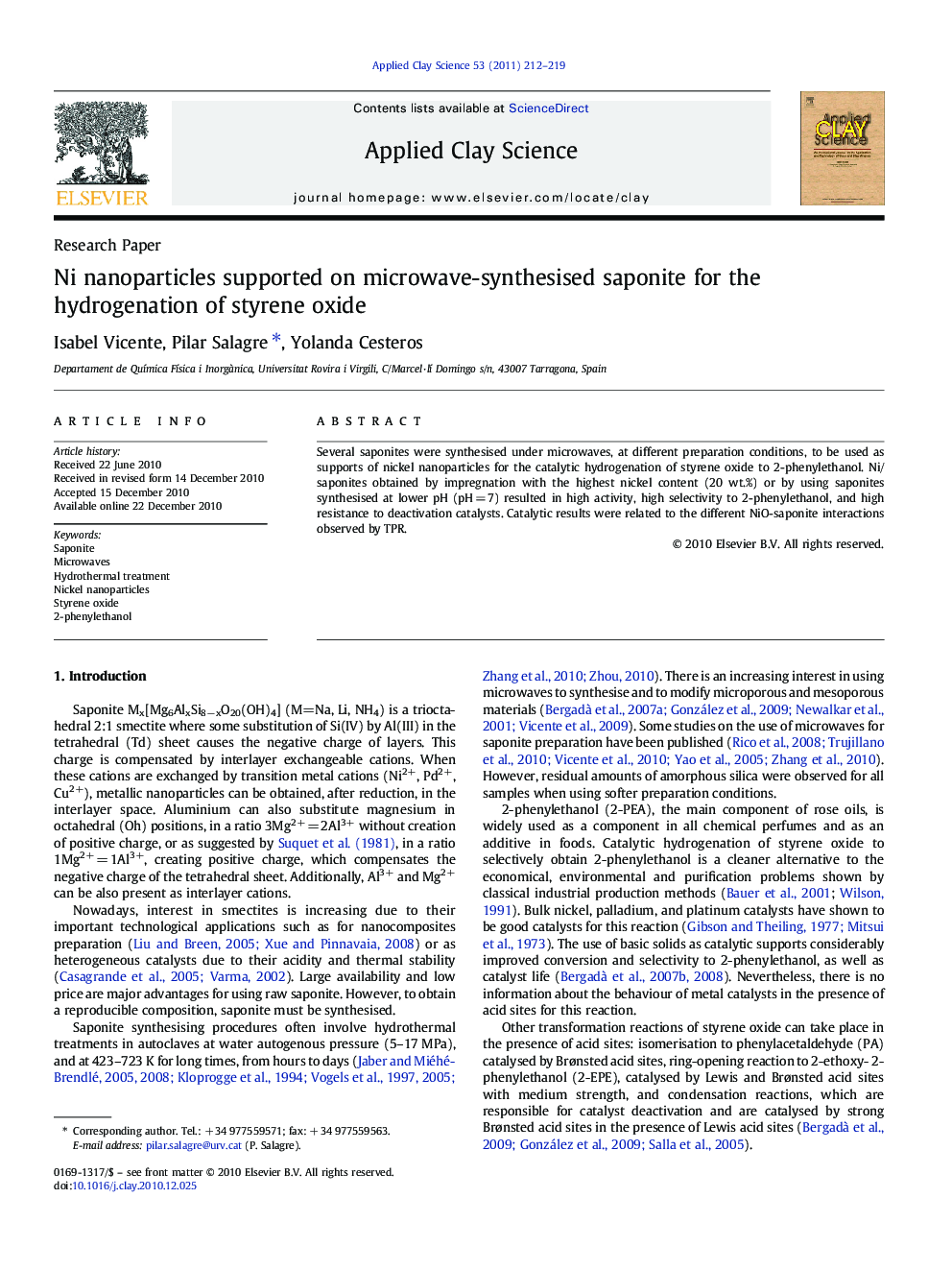| کد مقاله | کد نشریه | سال انتشار | مقاله انگلیسی | نسخه تمام متن |
|---|---|---|---|---|
| 1695626 | 1011868 | 2011 | 8 صفحه PDF | دانلود رایگان |

Several saponites were synthesised under microwaves, at different preparation conditions, to be used as supports of nickel nanoparticles for the catalytic hydrogenation of styrene oxide to 2-phenylethanol. Ni/saponites obtained by impregnation with the highest nickel content (20 wt.%) or by using saponites synthesised at lower pH (pH = 7) resulted in high activity, high selectivity to 2-phenylethanol, and high resistance to deactivation catalysts. Catalytic results were related to the different NiO-saponite interactions observed by TPR.
Research Highlights
► Saponites were synthesised with microwaves at different preparation conditions.
► Saponite impregnated Ni catalysts were active and very selective to 2-phenylethanol.
► Saponite impregnated Ni catalysts were very resistant to deactivation.
► Higher Ni content or saponites synthesised at lower pH improved catalytic results.
► Catalytic results were related to different NiO-saponite interactions.
Journal: Applied Clay Science - Volume 53, Issue 2, August 2011, Pages 212–219